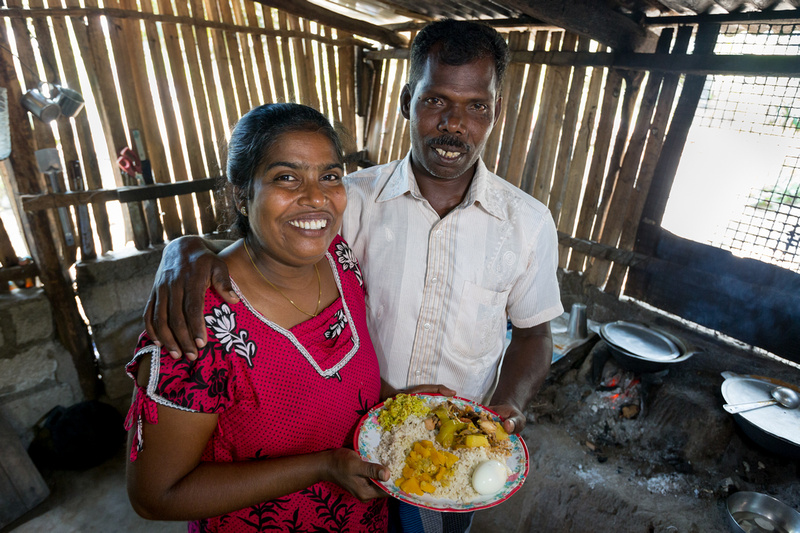
Brooke Mullen
Many Catholics and Christians celebrating Lent find themselves interested in revamping their diet, going beyond the standard “no meat on Fridays” practice. Are you one of them?
These 40 days of Lent offer a season of renewal, principally in terms of our spiritual health as we examine our conscious efforts to reaffirm our relationship with the Lord.
However, this period can also be an opportunity to recharge our physical well-being. Nutritious food provides the ingredients that nourish our bodies and minds, making it easier for us to place them at God’s service.
[hotblock]
According to the 2015-2020 Dietary Guidelines for Americans, a variety of whole grains, fresh fruits and vegetables, lean proteins and low-fat dairy comprise a healthy diet. In terms of our Lenten goals, a “plant- forward” approach to meals may be the most effective.
“Plant-forward” means just that: more plants, less meat. Divide your plate into quarters, and fill half of it with vegetables, a quarter with grains, and a quarter with protein, meat or plant-based.
With less (or no) meat on your menu, you might be wondering how to meet your protein needs. But you — and the planet — may not require as much animal protein as you think.
Many cultures throughout the world consume plant-based meals, which not only offer an abundance of nutrients and protein, but reduce the carbon footprint of the consumer. Studies show that livestock have a significantly higher environmental impact compared to plant-based foods, producing more emissions per unit of energy. Meat consumption also requires more water use than any other human activity.

Christyan DhathCroos and his wife Tharshi in their kitchen with lunch plate in the village of Nedunkandal, Adampan area, Mannar district, Northern Province, Sri Lanka. (Photo by Jeff Holt for Catholic Relief Services)
A faith-filled food approach would be to purchase ethically produced products, while working to reduce our use of foods that could potentially harm our environment.
Through its annual Rice Bowl initiative, Catholic Relief Services (CRS) offers a number of excellent resources for rethinking our approach to food by sharing in the traditions of others throughout the world, while working to meet the needs of those who experience food insecurity and respecting our environment.
This Lent, consider adding the following items to your menu, and visit CRS’s website for recipes and more information.
Lentils
Lentils pack a nutritious punch. Half a cup of cooked lentils includes nearly 9 grams of protein, almost 8 grams of fiber, as well as other important nutrients like iron, folate, copper and phosphorus.
Lentils are versatile too. Add them to a salad, soup or as a main dish.
Beans
Like lentils, beans are rich in protein, iron, fiber and many nutrients. Add them to soups, stews, tacos or wraps, or serve them as a main dish. Beans come in a variety of types: black, pinto, kidney, cannellini, black-eyed peas and more. A number of cultures rely on beans for hearty, delicious meals.
Black Bean Soup- Guatemala
Bean Cakes – Burkina Faso
Lablabi Soup – Iraq
Fried Plaintains and Beans – Democratic Republic of Congo
Pap with Spicy Vegetables – Lesotho
Riz National – Haiti
Although they are animal-derived, eggs are featured in many vegetarian or plant-based diets. One egg provides from 8 grams of protein, as well as many nutrients including omega-3 fats, vitamins A, D, E, and K, selenium, and choline among others. Be sure to eat the yolk, as that’s where the majority of nutrients are found. Add cooked eggs to a salad, or hard boil an egg for a quick, nourishing breakfast.
Fish
Pescetarians eat both plant-based foods and fish. During Lent, many individuals opt for fish on Fridays, as it is an acceptable substitute for meat. Fish and seafood are rich in protein and in nutrients such as selenium, healthy omega-3 fats, choline, and others. Try to include fish and seafood in your diet at least twice per week to reap the heart-healthy and brain-boosting benefits of these foods.
As we continue on our Lenten journey, remember those who are in need, both locally and globally. Proceeds from the CRS Rice Bowl assist many around the world, but also work to reduce hunger in our local Philadelphia area. Twenty-five percent of the funds collected here are shared with archdiocesan Nutritional Development Services to distribute food throughout all five counties in the greater Philadelphia area.
***
Brooke Mullen is the director for community relations and the community food program for the Archdiocese of Philadelphia’s Nutritional Development Services.
PREVIOUS: Latin American saint championed social justice in troubled times
NEXT: ‘Wonder Park’ embarks on superlative, if scary, ride



Share this story